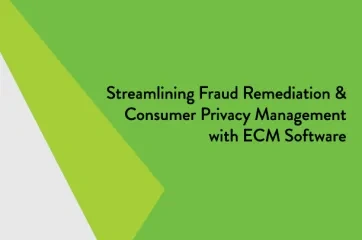What Does TRID Mean in Banking?
TRID is an acronym that stands for TILA-RESPA Integrated Disclosures. TRID was developed with the intent to allow potential homebuyers to easily shop for the best deal on a mortgage by requiring lenders to provide standardized and transparent details about loans. It also protects homebuyers from confusing or misleading lending practices. The federal government implemented TRID to replace four previously required documents:
- HUD-1 statement
- Truth-in-Lending (TIL) statement
- Truth-in-Lending disclosure
- Good Faith Estimate (GFE)
Under TRID, these four documents were simplified into two:
Loan Estimate (due at application time)
Closing Disclosure (due just before closing)
TRID Document Preparation
Modern banks and credit unions use third-party document preparation and tracking systems to stay organized and compliant with TRID regulations. This includes ensuring that disclosures are given at the appropriate time and follow regulatory guidelines.
TRID documents are tailored to each potential mortgage with specific data. This addresses items such as:
- Up-front mortgage cost
- Loan rate
- Loan type (fixed or variable)
- Cost over life of the loan
- Additional fees
- Mortgage insurance (needed or not)
- Penalties (late fees, early pay-off fees)
- If borrowing against an existing home, the disclosure includes information on the right of rescission. This allows the borrower a three-day window in which to reverse his or her decision after signing on a mortgage
Document preparation software guides lenders through TRID regulations, addresses them as necessary, and produces the right disclosures with the completed set of required data.
Managing and Storing TRID Documentation
Once mortgages are signed, TRID paperwork must be retained for specified time periods per federal regulation. Instead of transporting physical loan files to archive facilities, some financial institutions use document management software, such as AccuAccount and AccuDoc, to enable electronic access to and retention of documents.
In addition, e-sign integrations can accelerate how electronically signed documents are brought into the bank’s document management system.
Document Management Resources
For more information about document management, be sure to check out our extensive resource library with free spreadsheets, whitepapers, and eBooks.
Browse our banking definitions page for more terminology.














